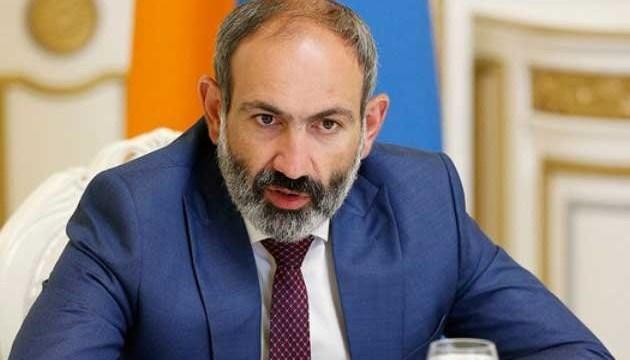Armenia experiencing another crisis of power

By Kamila Aliyeva
Armenia, where street policy prevails again, is experiencing
another crisis of power with growing dispute between the government
and the parliament.
After the parliament passed a bill to prevent the dissolution of
the National Assembly (parliament), Armenian Prime Minister Nikol
Pashinyan led people to the streets and said at a spontaneous rally
about the dismissal of ministers from the Prosperous Armenia (PAP)
and Dashnaktsutyun parties. He also said he will resign after the
orders about dismissals de jure come into force.
The bill passed by the parliament deprives Pashinyan of the
opportunity to hold early elections, having received a loyal
parliament, and a chance to become the legally elected prime
minister. Political October in Armenia promises to be hot.
The transit of power that began in Armenia in April-May of the
current year, which resulted in Serzh Sarkisian’s resignation and
the election of Nikol Pashinyan as prime minister of the country,
was expected to reach its logical end. It is only natural that a
prime minister without a parliament in a parliamentary form of
government will always be in danger of losing the levers of power.
So, the confrontation with the National Assembly proved was not
long in coming.
Pashinyan, who came to power as a result of the revolutionary
movement, called the adoption of this law counter-revolution.
“With this vote and the introduction of this bill into circulation,
the Republican Party of Armenia (RPA) and the forces assisting them
officially declared a counter-revolution in Armenia. The
counter-revolution has no chance in Armenia, since no one can take
away the victory from the people,” said Pashinyan.
The conflict between Pashinyan and the opposition, to which
Tsarukyan bloc and Dashnaktsutyun have now joined, arose out of the
demands of the prime minister to hold early parliamentary elections
in December 2018.
When RPA leader Serzh Sargsyan resigned, and the founder of the
“Civil Contract” party, opposition member Nikol Pashinyan took his
place, the executive power “migrated” to his hands, while the
legislative power (parliament) was left to the republicans.
What does it mean? The parliament could theoretically block any
initiatives of the government and generally paralyze the work of
two of the three branches of power in Armenia. This is another
“problem” of the new constitution - by default it assumes that the
head of the government is always appointed by parliamentary
majority. However, Pashinyan is the prime minister of the minority,
as he has only nine people in the National Assembly.
In order to deal with this situation and somehow normalize it,
Nikol Pashinyan needs to dissolve the parliament and hold early
elections.
According to the constitution, this may happen only in two cases -
if the parliament does not elect the prime minister twice in a row
or rejects the program of the newly elected government. In both
cases, Pashinyan will have to resign with a view to immediate
re-election, otherwise he will lose his chair.
The problem, however, is that the composition of the parliament has
“remained” the same since the RPA was in power, and in the event of
Pashinyan’s resignation, the opposition forces in the Armenian
legislature can elect “their own” prime minister, having made a de
facto counter-revolutionary coup.
That is why Pashinyan had to urge the people to once again go to
the streets and appeal to the President of the country Armen
Sargsyan not to sign the scandalous bill.
This is how another crisis of power arose in Armenia, but what’s
even more interesting is how those events are linked to the foreign
policy of the country.
Soon after the velvet revolution in the spring of 2018, Pashinyan
began to make very contradictory statements about the settlement of
the Armenia-Azerbaijan Nagorno-Karabakh conflict.
His appeals were especially remembered for returning the separatist
regime of Nagorno-Karabakh to the negotiating table.
Pashinyan explained this by the fact that he is not authorized to
speak on behalf of the “people of Karabakh”. The newly minted prime
minister also sent his son to military service in the frontline
zone. All this caused great concern in Azerbaijan.
However, on the sidelines of the summit of the CIS Council of Heads
of State in Dushanbe, Nikol Pashinyan initiated a conversation with
President of Azerbaijan Ilham Aliyev. As a result, the parties
decided to work out mechanisms for establishing operational
communications to prevent incidents on the contact line of troops
and on the border between Armenia and Azerbaijan.
Baku and global community have reacted very positively to the
rhetoric of Armenian leadership. Many experts also expressed views
that these talks would contribute to the solution of the
conflict.
On the background of certain positivity and hope that Armenia would
strive to peaceful negotiations aimed at the conflict resolution,
political situation inside Armenia has flared up. There are even
rumors and talks that civil war might break out there. Can it be
coincidence that these two events took place almost at the same
time? Unlikely.
There can be only one conclusion – the settlement of the Karabakh
conflict and strong Caucasus region are not profitable for certain
forces inside or, maybe, outside Armenia. Apparently, Baku and
Yerevan have still a lot to overcome in order to bring peace and
stability to the region.
---
Kamila Aliyeva is AzerNews’ staff journalist, follow her on Twitter: @Kami_Aliyeva
Follow us on Twitter @AzerNewsAz
Here we are to serve you with news right now. It does not cost much, but worth your attention.
Choose to support open, independent, quality journalism and subscribe on a monthly basis.
By subscribing to our online newspaper, you can have full digital access to all news, analysis, and much more.
You can also follow AzerNEWS on Twitter @AzerNewsAz or Facebook @AzerNewsNewspaper
Thank you!
